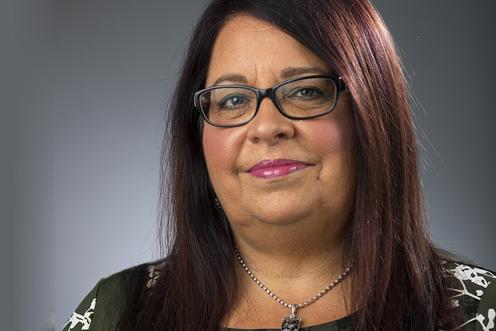Nurses Need More than Vaccines

On August 18, the New York State Department of Health (DOH) issued a mandate requiring all healthcare workers in the state, including staff at hospitals, nursing homes, and other related facilities, to be vaccinated by Monday, September 27. We know that mandates create an incredible amount of stress and we do not take lightly the anxiety this is causing. For these reasons, we immediately sent Requests to Bargain to all local bargaining units to ensure that we protect all union members.
NYSNA is also fighting to amplify the voice of all workers to get the protections they need. While we organized and helped get the Health and Essential Rights Act (HERO Act) implemented, we are clear about what this measure does and does not do. First, the HERO Act spells out health and safety measures to protect employees from exposure to airborne infectious diseases in all workplaces. It requires all employers to implement workplace safety plans to prevent on-the-job infections. Under the law, all employers are required to adopt a workplace safety plan, and implement it for all airborne infectious diseases designated by the New York State Department of Health. Employers can adopt a model safety plan as crafted by the New York State Department of Labor, or develop their own safety plan in compliance with HERO Act standards.
Broader guidance is needed
This is a step in the right direction, but additional guidance on broader measures that will impact and improve patient and caregiver safety are needed. For instance, the public still needs better information on aerosol transmission of respiratory viruses. But to date, the conversation has focused on vaccines without a full accounting of other measures that influence transmission rates. The Centers for Disease Control (CDC) has not provided enough information on the three phases of the virus; generation and inhalation (phase I), and transport (phase II), and inhalation, deposition and infection (phase III). Healthcare workers can’t be expected to keep people safe with limited information.
Additionally, this virus has shown that the nation must get better about listening to those on the frontlines. While the voices of hospital executives has been publicized, the voices and perspectives of nurses and other healthcare professionals must be equally amplified. Health care facilities of all types were hardest hit by the virus, leaving healthcare professionals to work amid understaffing, insufficient personal protective equipment (PPE), and flawed guidance from the CDC on how to limit transmission. These workers have unique insight that must be heeded.
Pay attention to airborne infection control
In April 2020, NYSNA sought an injunction against the NYS Department of Health over bad regulations around the health and safety measures. We didn’t have access to appropriate PPE or testing, we were told we didn’t need to quarantine and isolate as long as others. We took them to court and the judge said he couldn’t overrule the DOH on a health matter.
While the Health Commissioner’s recent designation of COVID-19 as a highly communicable airborne disease, nurses need full airborne infection control measures to stop COVID transmission in the healthcare environment. We need to ensure patients are co-horted properly. Facilities must have proper ventilation and more negative pressure rooms. Healthcare workers must have access to fit-tested N95 or better respiratory protection whenever they want them, whether they’re on a so-called COVID unit or not. No healthcare worker should be reusing a disposable N95 and more reusable respiratory PPE should be available at this point. Visitation policies need more stringent mitigation measures.
These are things we’ve been asking for all long.
Vaccines are not enough
The bottom line is that vaccination is an important step but it is not enough to stop the surge in transmission of the COVID variants. There are other measures that must be taken to truly protect the public, healthcare workers, and all those at high risk. We will continue pressing the CDC and the NYS DOH to follow all of the science- to mandate full airborne infection control measures in healthcare facilities, to mandate health and safety measures to protect all workers and to provide the public with more information on better masking and clearer guidance.
At the end of the day, we have an obligation to protect the public, and an obligation to care for and support those on the frontlines. We are reminding our employers of these obligations as we engage in impact bargaining over the implementation of the vaccine mandate. Our demands will sound familiar to them. They are built around the same health and safety protections and safe staffing principles we have been fighting for throughout the pandemic. They are built around respecting the knowledge and experience of healthcare professionals that have gone above and beyond to save so many lives. It’s past time for healthcare employers and policy makers to listen to those on the frontline.